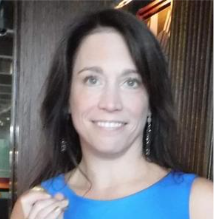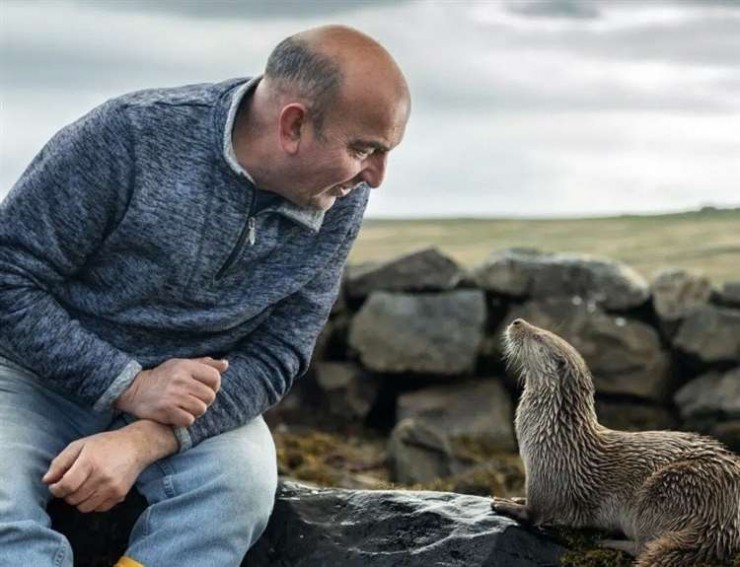Our Featured TM Pro Member today is Sarah Walker, Line Producer & Senior Production Manager.
Why did you decide the Production Manager route was where you wanted to work?
My first job in TV was as a runner on Antiques Roadshow in Bristol. It was an amazing introduction to television, working on a big production team, on such an iconic series.
It was during that production that I realised what Production Management was all about & that it would play to my strengths of budgeting, organisation & event planning.
How did you get into PM-ing?While I was working on Antiques Roadshow, the BBC had a board interview for a PMA pool, I applied and was successful which led to a 15-month role on Bargain Hunt as a Production Management Assistant. This great experience made me very sure that I wanted to go down the Production Management route.
I very much enjoyed being a PMA / PC though & stayed at that level for quite a long time. I was lucky enough to work on lots of interesting productions across many genres for 6 years at the BBC. I then moved to Icon Films as a PC. When the PM on my project moved on, I was offered the chance of a Junior Production Manager on The One Show. With support from a great PM team I was able to work on lots of exciting, mainly presenter led, projects & gain the experience needed to become a successful PM.
How did you learn to be an PM? What skills do you need?
I think that a lot of the support you get to grow as a PM, comes from other Production Managers & Line Producers. We have a great bunch of PM’s in Bristol with a wide variety of experience. I find that other PMs are always willing to give their time and advice.
I’ve tried to continue that, by doing the same for PC’s & JPM’s I work with, to help them progress in their careers & get the experiences they need to move up.
Key skills for Production Managers are:
- Being a natural organiser
- Head for figures
- Excellent interpersonal & team leading skills
- Calm under pressure
- Meticulous & an eye for detail.
- Strategic / good at seeing the bigger picture
What kinds of programmes do you work on?
I’ve worked across lots of different factual content. Factual documentaries, Fact Ent, natural history, sport, live broadcasts & daytime.
I do really enjoy presenter led documentaries, especially expeditions, with complex health & safety set-ups. Getting your team there, safely and on budget, but also coming back with great footage to show for it is really satisfying.
What are the most challenging projects to work on?
I have worked on some quite remote filming trips in places like Bhutan, Nepal & Brazil. Getting large teams to remote places, with kit & equipment that can cope with extreme temperatures & altitudes is very rewarding. I’m always very happy to have everyone home though.
What would be your advice to someone trying to get into your area of expertise?
The traditional production runner route is a really good way to get into production. The experience you get as a runner, stands you in good stead as your career progresses. What I learnt as a runner still sticks with me. Although starting as a runner isn’t 100% necessary when applying for PMA roles.
For people coming into production management later in their career as I did – loads of jobs have transferrable skills – I know previous roles in facilities management, event management & commercial radio, helped me when I found my true calling in TV production.
What’s your best TV life hack?
It’s important to be able to turn off notifications on your phone & stop looking at emails over the weekend. It’s good to enjoy time away from Production fully when possible, to stop burn out...as tempting as it is to check emails!
Why do you like using Talent Manager?
As a Production Manager I use Talent Manager as a recruitment tool and also personally to network & find new roles.
I find Talent Manager so helpful when recruiting new teams. It’s easy to keep the applications organised, shortlist & then respond to unsuccessful applicants quickly and in one place.
On a personal level, I think I have access to many more roles & opportunities than I would have without membership. Most companies I want to work with use TM to advertise positions and manage their talent pools. It's important to keep my availability up to date & my profile looking fresh.
In particular, what are the benefits to being a Pro member?
When I began looking for work, it was great to see the analytics of which people & companies were viewing my profile, CV & job applications.
I like being able to upload showreels & images to the top of my profile, which makes it stand out.
You can also add additional testimonials to your profile, rather than just one that you get with the basic account. I think this really helps with the amount of views your profile receives.
Thanks for sharing your answers with us! Connect with Sarah's TM profile here.


